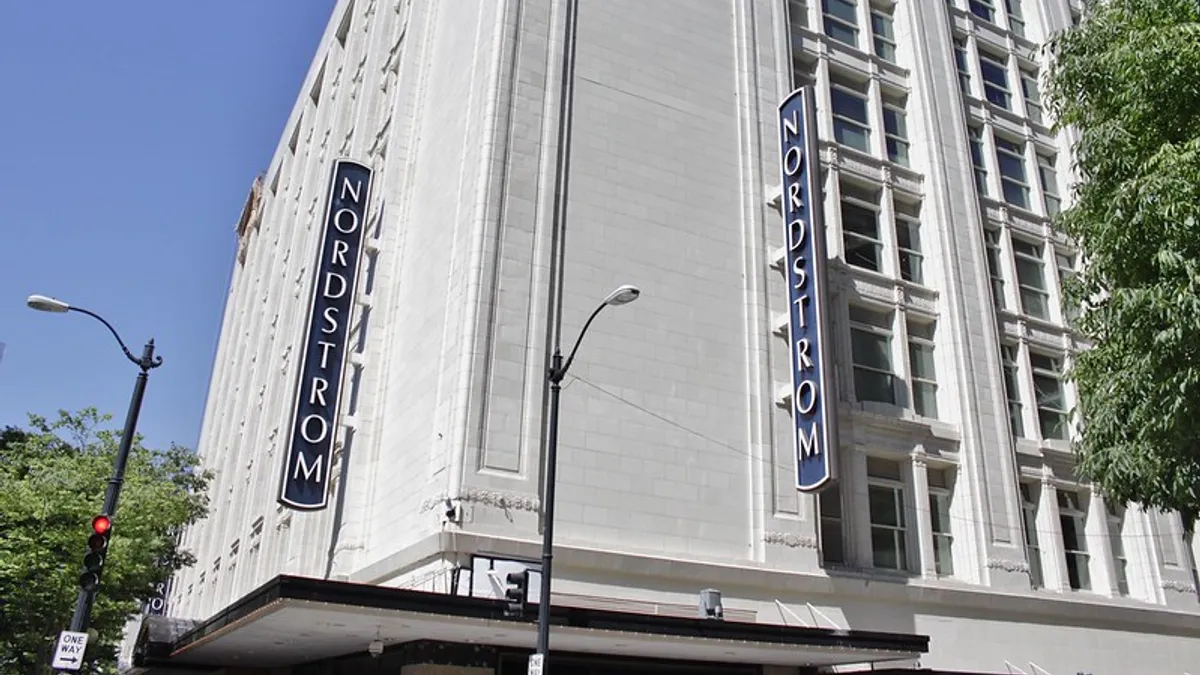Dive Brief:
-
Nordstrom is laying off 521 of its Seattle-based employees, according to a notice filed last week with the Washington state Employment Security Department.
-
The layoffs are part of the non-store workforce reductions, a portion of a 20% cut "to non-occupancy related overhead expenses," which were previously reported by Retail Dive, a company spokesperson said in an email on Monday.
-
The department store has announced the closure of 16 full-line stores, its Trunk Club locations and three specialty stores, leaving off-price Rack intact, and has informed its landlords that it won’t pay full rent for the rest of the year.
Dive Insight:
Because of its emphasis on in-store interactions and services, Nordstrom is especially vulnerable to the challenges brought on by the COVID-19 pandemic.
The department store has a robust e-commerce operation, but has sought to differentiate itself through high-touch amenities like tailoring, shoe repair, styling services, and food and beverage — most of which must be conducted in store, and some within a proximity not conducive to social distancing. Furthermore, while locations, including Nordstrom's, have reopened since the pandemic-forced lockdown was eased, consumers remain wary of shopping indoors.
Nordstrom is also likely suffering from depleted demand for clothing, which has sent apparel sales plummeting over the last several months. The retailer is apparently addressing that with deeper-than-usual discounts, according to tracking in early July by Wedbush analysts. While the company has moved its popular anniversary sale from July to August, it has begun promoting "up to 60% off clearance" starting from June 22, compared to its one-day-only promotion last year of "only up to 50% off," according to Wedbush.
Executives in remarks to analysts in May expressed confidence in their overall strategy, which is to fuse its full-price, off-price and Local stores into a single retail ecosystem, but the pandemic and its economic fallout have interfered. First quarter net sales fell 40% year over year, with full-line sales down 36% and off-price sales down 45%. The retailer experienced loss before interest and taxes of $813 million, from EBIT of $77 million a year ago, and swung to a net loss of $521 million, including after-tax COVID-19 charges of $173 million, from net earnings of $37 million a year ago.
"COVID-19 has had a very real impact on Nordstrom, accelerating the importance of our market strategy and capabilities we've invested in for years," a Nordstrom spokesperson told Retail Dive in an email earlier this month, noting the company's financial moves include executive salary cuts.















